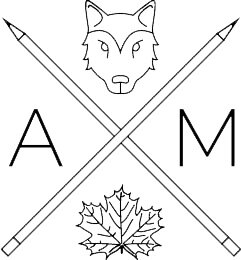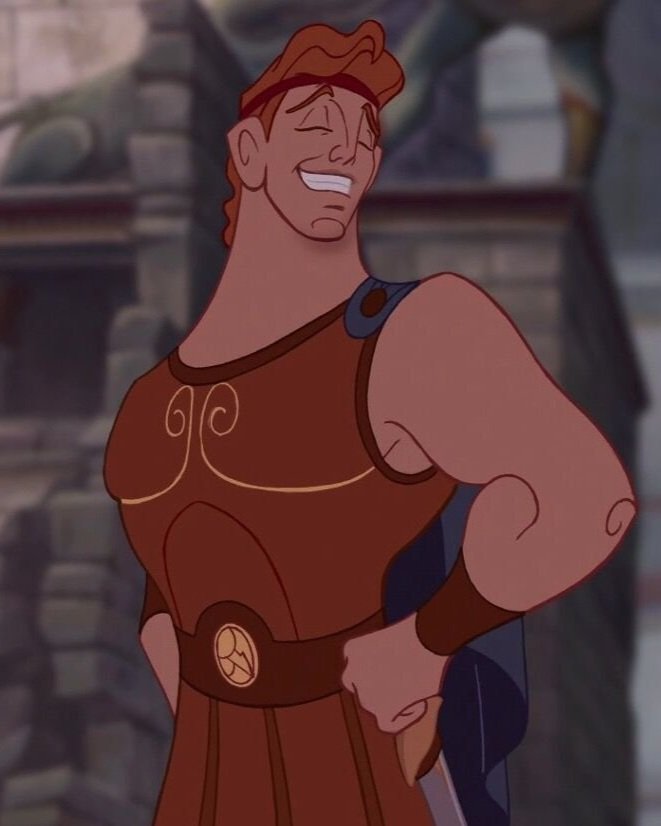Hercules and the Gay Mormon Agenda
“Lighten up, dude.”
“We’ll take it from here, darling.”
At the end of the 1997 Disney film Hercules, the titular character is offered eternal life on Olympus and the chance to become a god. Originally born of Zeus and Hera, Hercules was cast out from Olympus when he lost his godhood due to the nefarious efforts of Hades. With only a drop of godliness left him in—a small piece of embryonic godhood—Zeus and Hera had to, due to the laws of Olympus, cast him from the mountain and had to “watch their precious baby grow up from afar” (“The Gospel Truth III”).
Hercules does grow up; in fact, he goes the distance, so to speak. He is tasked with becoming a hero, so that, perhaps one day, his godly father can reinstate his godliness “after all [Hercules] can do” (2 Nephi 25:23). Hercules grows a massive and unearthly human form (most likely due to his one drop of godly blood), saves the people of Thebes countless times from the beasts of Hades, and even gets his own action figure. All the trappings of a hero—
Hercules posing after doing a heroic.
—but not of a god.
Hercules' godliness does not come until the end of the movie, after he has sold his birthright to Hades and still does the work of a hero. It isn’t, technically, a single moment; but, rather, it is due to the love felt between him and Meg, the love he has for the people of Thebes, and the love he holds for his godly father.[1] He doesn’t become a candidate for godhood when he faces one of the titans; he doesn’t become a god when Meg dies, thus returning his godly strength to him; and he doesn’t become a god when he dives into the River Styx to recover Meg’s soul.
Hercules is offered godhood only after he has developed himself as a person into a god.
“Therefore I would that ye should be perfect even as I, or your Father who is in heaven is perfect.”
The Latter-day Saint plan of salvation has many similarities to the apotheotic narrative of Hercules. The plan, too, is about leaving God’s presence in order to become something in this mortal life and thus be offered a spot with Heavenly Parents again in post-mortality. The plan also takes doing things (performing heroic feats, if you will) throughout life on Earth: ordinances and covenants, yes, but also becoming like God in how we love each other, how we care for each other, and how we emulate the principle teachings of the gospel.
However, Hercules, like the queer Mormon, must choose between godhood and the people he has grown to love through his mortal experience.[2] At the end of the movie, Zeus offers his son the return to Olympus he has sought. But, learning that this choice would also mean giving up Meg, Hercules rejects his father’s offer and chooses to remain mortal in order to be with those he has grown to love.
This experience is similar to the queer Mormon experience. To love fully and completely another human being, we must reject the eschatological possibility that Mormonism offers—or, at least, the possibility that the Church presently constituted offers. We are told to do heroic feats throughout our life (to serve, to be a disciple of Christ), but, ultimately, we are taught that we will need to give up romantic and sexual love if we want to live with our Heavenly Parents again.
It is difficult for me to believe happily and joyfully in loving Heavenly Parents who want this path for any of Their children. I hope it is also difficult for you to believe it, too, because then you, if non-gay, understand, in some ways, the plight of the queer Mormon.
To be like God—to experience love as God experiences it, in eternal partnership with another being—we are forced to reject living with that very same God in the celestial kingdom.
While this is how the Church’s teachings of the plan of salvation are currently taught, I and other queer members do not believe this needs to be the same. The term “the gay agenda” is thrown around a lot in political parlance and societal sorties, but I’d like to take a moment to outline a gay Mormon agenda, one that seeks for a god who can love all Their children equally.
The gay Mormon agenda, at its foundational layer, is quite simple: We would like to be treated in the same way as our non-gay fellow children of God. As presently constituted, the Church does not treat gay children of God in a similar way to non-gay children of God.
For the non-gay child of God, relationships, love, and marriage—sexual activity, something God created as a possibility within human bodies—is structured into the plan of salvation. To be born, heterosexual sex must currently happen. To solemnize a marriage, sex must currently happen. To have a fulfilling relationship with a marriage partner, some forms of sexual concourse must happen.[3] These activities are sanctioned—even encouraged—through the plan of salvation as it is centered on forming an eternal relationship with another child of God.
For the gay child of God, some relationships and love are available—but not all. We cannot fulfill the sex drive that God created in human beings (a drive created, as Latter-day prophets and scriptures emphasize, for more than just procreation). Our sexual actions, even though built into our human bodies, are not reflected in the plan of salvation. We have no way but to dam that part of our body in order to reach heaven.
Like Hercules and Meg, we must reject our Heavenly Parents in order to have fulfilling, enriching, and sexual relationships—relationships that ultimately help us grow in our capacity to feel and express divine love like our Heavenly Parents. The path that we must walk in order to live with Heavenly Parents, according to how the Church has laid out policy, procedure, and pulpit-doctrine, is away from developing all forms of love in this life because our love with those we are physically attracted to is seen as deviant, non-righteous, Satanic, a mockery of true or godly love.
Hercules choosing love over godhood.
The gay Mormon agenda is simple: we ask that members of the Church—the Church we too belong, were raised in, and believe in—think about the consequences of the doctrine as presently constituted and seek a restoration of knowledge. We want to be seen in the doctrine and theology we were taught growing up and in which some of us still believe. We want to be offered a chance to join our Heavenly Parents with our chosen eternal partner at our side, the person we've developed godly love with, the person we've developed a family with, the person we've grown to love just as non-gay members of the Church love their spouses.
If the acknowledgement of queer existence requires a prophetic revelation, so be it. If queer acceptance requires changes to doctrine or theology—or, at the very least, a re-envisioning of how we teach and profess the plan of salvation—so be it. The Church of Jesus Christ has faced theological change before, so let it happen again. And quickly—before more hearts are broken and lives are lost.
As it stands, the choice to love queerly is a rejection of Mormon eschatological hope. In striving to progress and learn about God—to love another being, thus developing our capacity to love (i.e., becoming a saint)—we come to a crossroads of the soul, in which we either have to reject love or reject godhood.[4]
So, again, the gay Mormon agenda is simple:
Let us love and be loved—even including but not limited to romantic, sexual partnership. Love us in our love. Love us because of our love. Love us as we love.
For now, we will continue making the herculean decision of being forced to choose whom to love and where to love and how to love. We will be barred from all forms of love by the Church we were raised and forced into love of only a certain kind. We will be forced to reject the Church—and the priesthood that we were taught could return us to our Heavenly Father—and discover new paths and lives and loves and eschatology.
We will still die, and we will still live.
And even as we turn from or toward Mount Olympus, we will still await further light and knowledge from our Heavenly Parents to let us know we are seen, we are here, we are loved, and we are a part of the plan.
Notes
[1] We’ll save for another time a discussion of the complications of various portrayals of love in a movie crafted by adults for children.
[2] Throughout this post, I use “queer Mormon” or, the easier, “we” to refer to individuals who have a queer sexuality or gender expression and have had some form of interaction with the Church throughout the life. This categorization, then, encompasses both those who still seek to actively participate in the Church and those who have chosen to left. Additionally, while I use queer in its umbrella form, I acknowledge and respect that what I’m saying does not and will not reflect the opinions of all queer individuals or queer communities. We are a diverse group of people with diverse opinions and experiences, and I am not a chosen or accepted spokesperson for these communities. I share my thoughts through writing because it helps me share my soul with your soul; these thoughts should not be seen as the correct or right or eternal truth of queerness. They are but the words of one wanderer to another.
[3] The phrasing I use here is an attempt to acknowledge that sex does not happen in all marriage relationships. It is also an acknowledgment that fulfilling sex does not happen in all marriage partnerships. I am attempting to walk the line of acknowledging sexual practice while not reducing all relationships to sexual intimacy.
[4] This is not a choice that is even remotely similar to that of a celibate and chaste heterosexual member of the Church. Equality of doctrine or policy cannot happen when that equality requires more of another person.
Afterword
I've always loved the movie Hercules, and songs like "Go the Distance" and "I Won't Say I'm in Love" are total bops. In fact, I sang "Go the Distance" for my missionary farewell. About a year ago, I was either listening to or watching Hercules, and I had the briefest of epiphanies. I returned to this epiphany while listening to a recent podcast by a famous gay Mormon who discussed his struggle around Mormonism and love. I wanted to write further on the subject, to develop my thoughts, and so I chose to follow the Haglund way, set a timer for myself, and wrote.
I went beyond the timer (and ignored my other obligations and duties for the morning) because I wanted to phrase things in a specific way and be careful with my words (something I, inevitably, failed with because words are fickle things). But, I like the thoughts that I wrote down, and I hope you can find some connection to them too.



